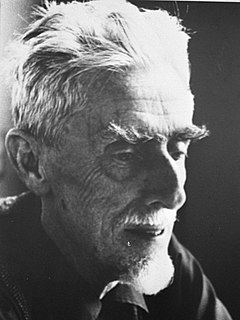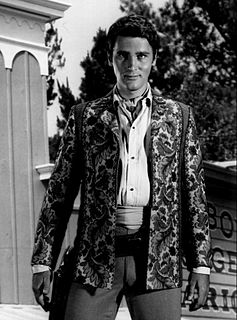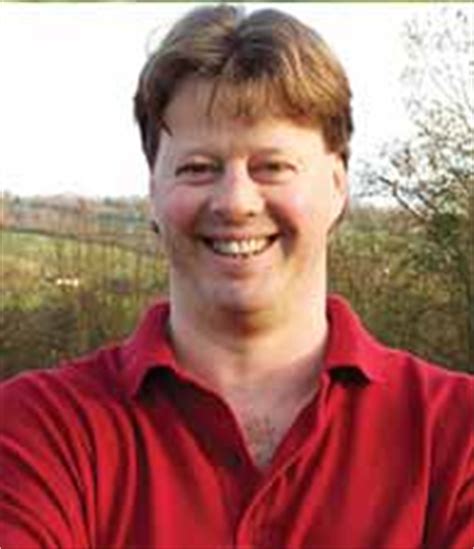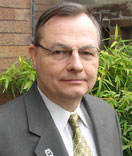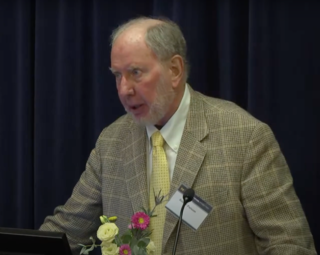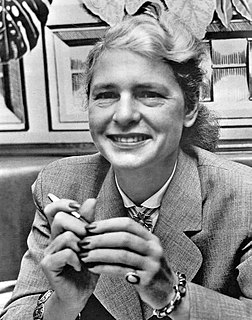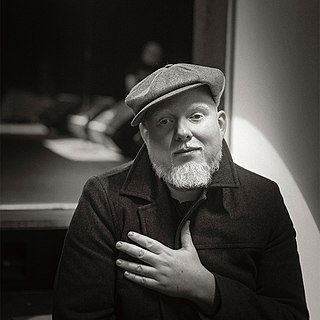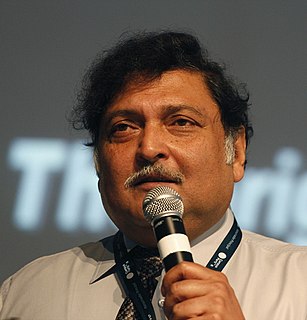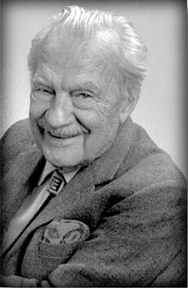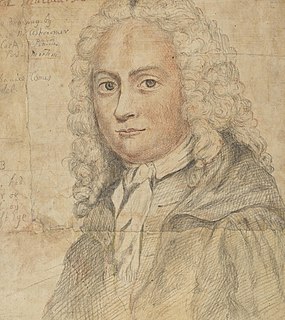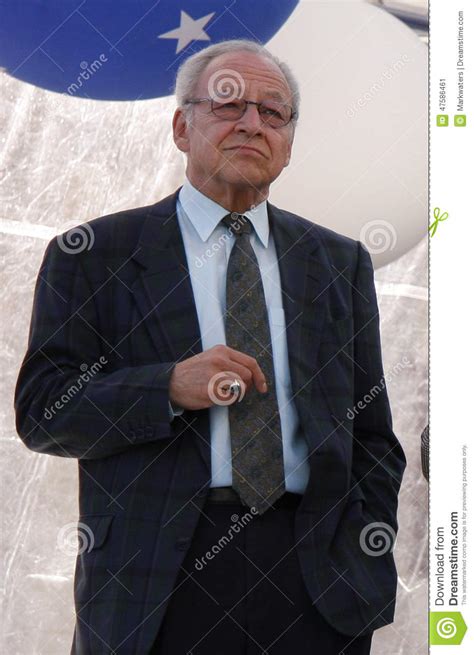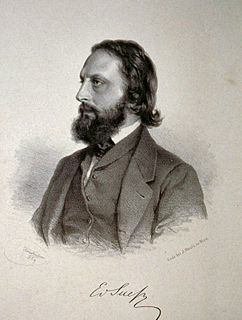Top 715 Discoveries Quotes & Sayings - Page 12
Explore popular Discoveries quotes.
Last updated on November 12, 2024.
Research at the subatomic quantum level reveals an invisible connection between all particles and all members of a given species. This oneness is being demonstrated in remarkable scientific discoveries. The findings show that physical distance, what we think of as empty space, does not preclude a connection by invisible forces. Obviously there exist invisible connections between our thoughts and our actions. We do not deny this, even though the connection is impervious to our senses.
At one time or another the more fortunate among us make three startling discoveries. Discovery number one: Each one of us has, in varying degree, the power to make others feel better or worse. Discovery two: Making others feel better is much more fun than making them feel worse. Discovery three: Making others feel better generally makes us feel better.
There is something in such laws that takes the breath away. They are not discoveries or inventions of the human mind, but exist independently of us. In a moment of clarity, one can at most discover that they are there and take them into account. Long before there were people on the earth, crystals were already growing in the earth's crust. On one day or another, a human being first came across such a sparkling morsel of regularity lying on the ground or hit one with his stone tool and it broke off and fell at his feet, and he picked it up and regarded it in his open hand, and he was amazed.
Money is different from all other commodities: other things being equal, more shoes, or more discoveries of oil or copper benefit society, since they help alleviate natural scarcity. But once a commodity is established as a money on the market, no more money at all is needed. Since the only use of money is for exchange and reckoning, more dollars or pounds or marks in circulation cannot confer a social benefit: they will simply dilute the exchange value of every existing dollar or pound or mark.
(Five) thinkers since Galileo, each informing his successor of what discoveries his own lifetime had seen achieved, might have passed the torch of science into our hands as we sit here in this room. Indeed, for the matter of that, an audience much smaller than the present one, an audience of some 5 or 6 score people, if each person in it could speak for his own generation, would carry us away to the black unknown of the human species, to days without a document or monument to tell their tale.
The actions of bad men produce only temporary evil, the actions of good men only temporary good ; and eventually the good and the evil altogether subside, are neutralized by subsequent generations, absorbed by the incessant movements of future ages. But the discoveries of great men never leave us; they are immortal; they contain those eternal truths which survive the shock of empires, outlive the struggles of rival creeds, and witness the decay of successive religions.
If the motive of writing is for some people a kind of exercise in dirty laundry, that's one thing. I've always thought of my poems as meant to be overheard, as I think all of these poems are. It seems to me if you get experience right, even your most painful or humiliating experiences - if you get those experiences right for yourself and make discoveries as you go along and find for them some formal glue - they will be poems for others.
Indeed, nothing more beautifully simplifying has ever happened in the history of science than the whole series of discoveries culminating about 1914 which finally brought practically universal acceptance to the theory that the material world contains but two fundamental entities, namely, positive and negative electrons, exactly alike in charge, but differing widely in mass, the positive electron-now usually called a proton-being 1850 times heavier than the negative, now usually called simply the electron.
Scientists are educated from a very early time and a very early age to believe that the greater scientist is the scientist who makes discoveries or theories that apply to the greatest ambit of things in the world. And if you've only made a very good theory about snails, or a very good theory about some planets but not about the universe as a whole, or about all the history of humankind, then you have in some sense accepted a lower position in the hierarchy of the fame of science as it's taught to you as a young student.
I think different societies, cultures, individuals, teams of people, make the world a better place. The founding fathers, they made New England, they made those 13 colonies. I don't know if they thought they were changing the world or just changing their world, but they did make the world a better place. Doctors that cure patients or cure diseases or make discoveries, they're making the world a better place. Can I make the world a better place by selling underpants? Not really. That's just the means. That gives me resources to try to make the world a better place.
At the time in our lives that we met, we had both made our mistakes. If chance would have had it that we would have met at an earlier stage, we might not have had the discoveries together that we did have and found those things in life together that were valuable to us at a later point in life when we were both more mature.
We are unreasonably desirous to separate the goods of life from those evils which Providence has connected with them, and to catch advantages without paying the price at which they are offered to us. Every man wishes to be rich, but very few have the powers necessary to raise a sudden fortune, either by new discoveries, or by superiority of skill in any necessary employment; and among lower understandings many want the firmness and industry requisite to regular gain and gradual acquisitions.
The discoveries of the last couple decades are showing that properties of a self do actually inhere in matter, that matter seems to have properties of self-organization and life, even intelligence, consciousness. I can't say that science has proved these things, but it at least suggests the possibility. As we re-invest the world with sacredness, "spiritual" comes to mean something very different. If only a human being has these qualities, then spiritual work is inner. It's all about your own consciousness.
Robots are important also. If I don my pure-scientist hat, I would say just send robots; I'll stay down here and get the data. But nobody's ever given a parade for a robot. Nobody's ever named a high school after a robot. So when I don my public-educator hat, I have to recognize the elements of exploration that excite people. It's not only the discoveries and the beautiful photos that come down from the heavens; it's the vicarious participation in discovery itself.
You have to have a lot of ideas. First, if you want to make discoveries, it's a good thing to have good ideas. And second, you have to have a sort of sixth sense-the result of judgment and experience-which ideas are worth following up. I seem to have the first thing, a lot of ideas, and I also seem to have good judgment as to which are the bad ideas that I should just ignore, and the good ones, that I'd better follow up.
a novelist's chief desire is to be as unconscious as possible. He has to induce in himself a state of perpetual lethargy. He wants life to proceed with the utmost quiet and regularity. He wants to see the same faces, to read the same books, to do the same things day after day, month after month, while he is writing, so that nothing may break the illusion in which he is living - so that nothing may disturb or disquiet the mysterious nosings about, feelings around, darts, dashes, and sudden discoveries of that very shy and illusive spirit, the imagination.
The examen is a form of personal inventory. At day’s end, spend time in prayerful reflection on your day: your comings and goings, routines and disruptions, work and play, discoveries and disappointments. Think about who you met, or missed. Think about your moments of aloneness. In all, ask two questions: when was I most alive, most present, most filled and fulfilled today? And when was I most taxed, stressed, distracted, depleted today? A simpler, and more spiritually focused, version of those questions: when did I feel closest to God, and when farthest?
I am not an advocate for frequent changes in laws and Constitutions. But laws and institutions must go hand in hand with the progress of the human mind. As that becomes more developed, more enlightened, as new discoveries are made, new truths discovered and manners and opinions change, with the change of circumstances, institutions must advance also to keep pace with the times. We might as well require a man to wear still the coat which fitted him when a boy as civilized society to remain ever under the regimen of their barbarous ancestors.
For those who believe in God, most of the big questions are answered. But for those of us who can't readily accept the God formula, the big answers don't remain stonewritten. We adjust to new conditions and discoveries. We are pliable. Love need not be a command nor faith a dictum. I am my own god. We are here to unlearn the teachings of the church, state and our educational system. We are here to drink beer. We are here to kill war. We are here to laugh at the odds and live our lives so well that Death will tremble to take us.
I'd go back and hang out with Isaac Newton. I'm torn between do I hang out with him or do I bring him into the present to hang out with me. See, that might be terrifying because his head will just explode once he sees everything that was derived from his discoveries, but I'd spend more time with someone who I think is one of the most brilliant minds our species has ever known.
We ought never to be afraid to repeat an ancient truth, when we feel that we can make it more striking by a neater turn, or bring it alongside of another truth, which may make it clearer, and thereby accumulate evidence. It belongs to the inventive faculty to see clearly the relative state of things, and to be able to place them in connection; but the discoveries of ages gone by belong less to their first authors than to those who make them practically useful to the world.
The AMA virtually stopped the Rife treatment in 1939, first by threatening the physicians using Rife's instrument, then by forcing Rife into court....During the period 1935 to early 1939, the leading laboratory for electronic or energy medicine in the USA, in New Jersy, was independently verifying Rife's discoveries...(this) laboratory was "mysteriously" burned to the ground.....Rife's treatment was ruthlessly suppressed by the AMA's Morris Fishbein.
Though we [Humanists] take a strict position on what constitutes knowledge, we are not critical of the source of ideas. Often intuitive feelings, hunches, speculation, and flashes of inspiration prove to be excellent sources of novel approaches, new ways of looking at things, new discoveries, and new information. We do not disparage those ideas derived from religious experience, altered states of consciousness, or the emotions; we merely declare that testing these ideas against reality is the only way to determine their validity as knowledge.
England and all civilised nations stand in deadly peril of not having enough to eat. As mouths multiply, food resources dwindle. Land is a limited quantity, and the land that will grow wheat is absolutely dependent on difficult and capricious natural phenomena... I hope to point a way out of the colossal dilemma. It is the chemist who must come to the rescue of the threatened communities. It is through the laboratory that starvation may ultimately be turned into plenty... The fixation of atmospheric nitrogen is one of the great discoveries, awaiting the genius of chemists.
Unequal Democracy is the sort of book to which every political scientist should aspire--it is methodologically rigorous, conceptually serious, and above all, it addresses urgent concerns of our fellow citizens. As Bartels shows, much of what we think we know about the politics of economic inequality is dead wrong. Bartels's perplexing and often unexpected discoveries should help refocus the gathering public debate about inequality and what to do about it.
Archaeology is a science, and like all sciences, has its limitations. For one, archaeological discoveries made in the past centuries have been reappraised and reinterpreted by more recent findings. Some of the older positive claims, as well as most of the negative criticisms of the Bible, have changed, usually for the better. For another, the actual amount of archaeological evidence is quite small. It has been estimated that less than 1% of archaeological sites in the Holy Land have been excavated, and those that have been excavated have only been partially excavated.
Those without the gate frequently question the wisdom and right of the occultist to guard his knowledge by the imposition of oaths of secrecy. We are so accustomed to see the scientist give his beneficent discoveries freely to all mankind that we feel that humanity is wronged and defrauded if any knowledge be kept secret by its discoverers and not at once made available for all who desire to share in it.
The knowledge is reserved in order that humanity may be protected from its abuse at the hands of the unscrupulous.
The element of discovery is very important. I don't repeat myself well. I want and need that stimulus of walking forward from one new world to another. There is something demoralizing about going back to a place to retake pictures. You can no longer see your subjects in a fresh eye; you keep comparing them with the pictures you hold in your memory. [The] world was full of discoveries waiting to be made...(as a photographer) I could share the things I saw and learned...you would react to something all others might walk by.
Which is to say that culture is not a reflex of political economy, but
that society is now a reflex of key shifts in music theory and practice....
[Sampladelia is] the sound made by those early-twentieth-century discoveries
in particle physics and relativiity theory, the projection of the minds of
Einstein, Heisenbery, and Bohr, their fateful explorations of liquid time,
curving space, uncertainty fields and relativity theorems, into densely
configured and fully ambivalent android music tracks
True drama can be conceived only as resulting from the collective impulse of all the arts to communicate in the most immediate way with a collective public... Thus especially the art of tone, developed with such singular diversity in instrumental music, will realize in the collective artwork its richest potential -- will indeed incite the pantomimic art of dancing in turn to wholly new discoveries and inspire the breath of poetry no less to an undreamed-of fullness. For in its isolation music has formed itself an organ capable of the most immeasurable expression - the orchestra.
One way to think about play, is as the process of finding new combinations for known things--combinations that may yield new formsof expression, new inventions, new discoveries, and new solutions....It's exactly what children's play seems to be about and explains why so many people have come to think that children's play is so important a part of childhood--and beyond.
If the 1,990-page House Health Care Bill becomes law, the average American will receive worse health care, American physicians will decline in status and income, American medical innovation will dramatically slow down and pharmaceutical discoveries will decline in number and quality. And, of course, the economy of the United States will deteriorate, perhaps permanently.
Einstein's space is no closer to reality than Van Gogh's sky . The glory of science is not in a truth more absolute than the truth of Bach or Tolstoy, but in the act of creation itself. The scientist's discoveries impose his own order on chaos, as the composer or painter imposes his; an order that always refers to limited aspects of reality, and is based on the observer's frame of reference, which differs from period to period as a Rembrant nude differs from a nude by Manet.
I've always loved independent music stores because the staff is usually there because of a genuine love and appreciation for music. They're more in-tune with the customers and I'm willing to pay the extra dollar or two for the service they provide. Some of my greatest music discoveries have come from picking up an album at an indy store and the cat behind the register saying "You like this man? Have you heard of so-and-so?" I prefer to shop where people understand me and the music- the music i like.
Our mind has its history, just as our body has its history. You might be just as astonished that man has an appendix, for instance. Does he know he ought to have an appendix? He is just born with it....Our unconscious mind, like our body, is a storehouse of relics and memories of the past. A study of the structure of the unconscious collective mind would reveal the same discoveries as you make in comparative anatomy. We do not need to think that there is anything mystical about it.
My wish is to help design the future of learning by supporting children all over the world to tap into their innate sense of wonder and work together. Help me build the School in the Cloud, a learning lab in India, where children can embark on intellectual adventures by engaging and connecting with information and mentoring online. I also invite you, wherever you are, to create your own miniature child-driven learning environments and share your discoveries.
If God brings our pets back to life, it wouldn't surprise me. It would be just like Him. It would be totally in keeping with His generous character... Exorbitant. Excessive. Extravagant in grace after grace. Of all the dazzling discoveries and ecstatic pleasures heaven will hold for us, the potential of seeing Scrappy would be pure whimsy-utterly, joyfully, surprisingly superfluous... Heaven is going to be a place that will refract and reflect in as many ways as possible the goodness and joy of our great God, who delights in lavishing love on His children.
Man is still by instinct a predatory animal given to devilish aggression. The discoveries of science have immensely increased productivity of material things. They have increased the standards of living and comfort. They have eliminated infinite drudgery. They have increased leisure. But that gives more time for devilment. The work of science has eliminated much disease and suffering. It has increased the length of life. That, together with increase in productivity, has resulted in vastly increased populations. Also it increased the number of people engaged in devilment.
The world of science lives fairly comfortably with paradox. We know that light is a wave, and also that light is a particle. The discoveries made in the infinitely small world of particle physics indicate randomness and chance, and I do not find it any more difficult to live with the paradox of a universe of randomness and chance and a universe of pattern and purpose than I do with light as a wave and light as a particle. Living with contradiction is nothing new to the human being.
But, contrary to the lady's prejudices about the engineering profession, the fact is that quite some time ago the tables were turned between theory and applications in the physical sciences. Since World War II the discoveries that have changed the world are not made so much in lofty halls of theoretical physics as in the less-noticed labs of engineering and experimental physics. The roles of pure and applied science have been reversed; they are no longer what they were in the golden age of physics, in the age of Einstein, Schrödinger, Fermi and Dirac.
Science is a human activity, and the best way to understand it is to understand the individual human beings who practise it. Science is an art form and not a philosophical method. The great advances in science usually result from new tools rather than from new doctrines. ... Every time we introduce a new tool, it always leads to new and unexpected discoveries, because Nature's imagination is richer than ours.
Perhaps the history of the errors of mankind, all things considered, is more valuable and interesting than that of their discoveries. Truth is uniform and narrow; it constantly exists, and does not seem to require so much an active energy, as a passive aptitude of the soul in order to encounter it. But error is endlessly diversified; it has no reality, but is the pure and simple creation of the mind that invents it. In this field the soul has room enough to expand herself, to display all her boundless faculties, and all her beautiful and interesting extravagancies and absurdities.
In spite of the fact that religion looks backward to revealed truth while science looks forward to new vistas and discoveries, both activities produce a sense of awe and a curious mixture of humility and arrogance in their practitioners. All great scientists are inspired by the subtlety and beauty of the natural world that they are seeking to understand. Each new subatomic particle, every unexpected object, produces delight and wonderment. In constructing their theories, physicists are frequently guided by arcane concepts of elegance in the belief that the universe is intrinsically beautiful.
We were very, very lucky [with Tim White filmed making historic discoveries in the East African Rift ] . In 100 years, only three skeletal remains [of early man] were ever found at this site. This was the third one, and we were right there when it happened. In fact, when I first heard they had found something, I said, "Please stop it! Don't do anything right now. Let's do it tomorrow until we have unpacked our cameras and assembled our stuff.
It is not therefore the business of philosophy, in our present situation in the universe, to attempt to take in at once, in one view, the whole scheme of nature; but to extend, with great care and circumspection, our knowledge, by just steps, from sensible things, as far as our observations or reasonings from them will carry us, in our enquiries concerning either the greater motions and operations of nature, or her more subtile and hidden works. In this way Sir Isaac Newton proceeded in his discoveries.
As Eastern thought has begun to interest a significant number of people, and meditation is no longer viewed with ridicule or suspicion, mysticism is being taken seriously even within the scientific community. An increasing number of scientists are aware that mystical thought provides a consistent and relevant philosophical background to the theories of Contemporary science, a conception of the world in which the scientific discoveries of men and women can be in perfect harmony with their spiritual aims and religious beliefs.
The conspiracy community regularly seizes on one slip of the tongue, misunderstanding, or slight discrepancy to defeat twenty pieces of solid evidence; accepts one witness of theirs, even if he or she is a provable nut, as being far more credible than ten normal witnesses on the other side; treats rumors, even questions, as the equivalent of proof; leaps from the most minuscule of discoveries to the grandest of conclusions; and insists that the failure to explain everything perfectly negates all that is explained.
Certainly there are things worth believing. I believe in the brotherhood of man and the uniqueness of the individual. But if you ask me to prove what I believe, I can't. You know them to be true but you could spend a whole lifetime without being able to prove them. The mind can proceed only so far upon what it knows and can prove. There comes a point where the mind takes a leap—call it intuition or what you will—and comes out upon a higher plane of knowledge, but can never prove how it got there. All great discoveries have involved such a leap.
Gastronomers of the year 1825, who find sateity in the lap of abundance, and dream of some newly-made dishes, you will not enjoy the discoveries which science has in store for the year 1900, such as foods drawn from the mineral kingdom, liqueurs produced by the pressure of a hundred atmospheres; you will never see the importations which travelers yet unborn will bring to you from that half of the globe which has still to be discovered or explored. How I pity you!
The arts and sciences, in general, during the three or four last centuries, have had a regular course of progressive improvement. The inventions in mechanic arts, the discoveries in natural philosophy, navigation and commerce, and the advancement of civilization and humanity, have occasioned changes in the condition of the world and the human character which would have astonished the most refined nations of antiquity. A continuation of similar exertions is everyday rendering Europe more and more like one community, or single family.
Through scientific discovery and technological innovation, we enlist the forces of the natural world to solve many of the uniquely human problems we face - feeding and providing energy to agrowing population, improving human health, taking responsibility for protecting the environment and the global ecosystem, and ensuring our own Nation's security. Scientific discoveries inspire and enrich us, teaching us about the mysteries of life and the nature of the world.
When authoritative reports of radical-design craft having spectacular performance are viewed in the light of a stream of astrobiological discoveries, the possibility that some UFOs are alien does not seem quite so farfetched. Serious-minded scientists in astronomy and other disciplines estimate there could be billions of planets in the universe, and millions that could harbor life. If even a few of those planets were occupied by technological civilizations, their ability (if not desire) to explore other worlds, such as ours, must be a possibility.
The breaking up of the terrestrial globe, this it is we witness. It doubtless began a long time ago, and the brevity of human life enables us to contemplate it without dismay. It is not only in the great mountain ranges that the traces of this process are found. Great segments of the earth's crust have sunk hundreds, in some cases, even thousands, of feet deep, and not the slightest inequality of the surface remains to indicate the fracture; the different nature of the rocks and the discoveries made in mining alone reveal its presence. Time has levelled all.



